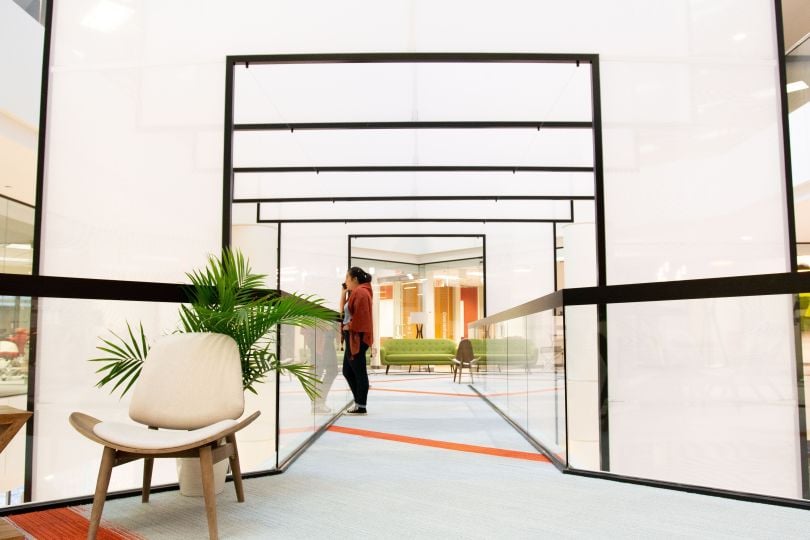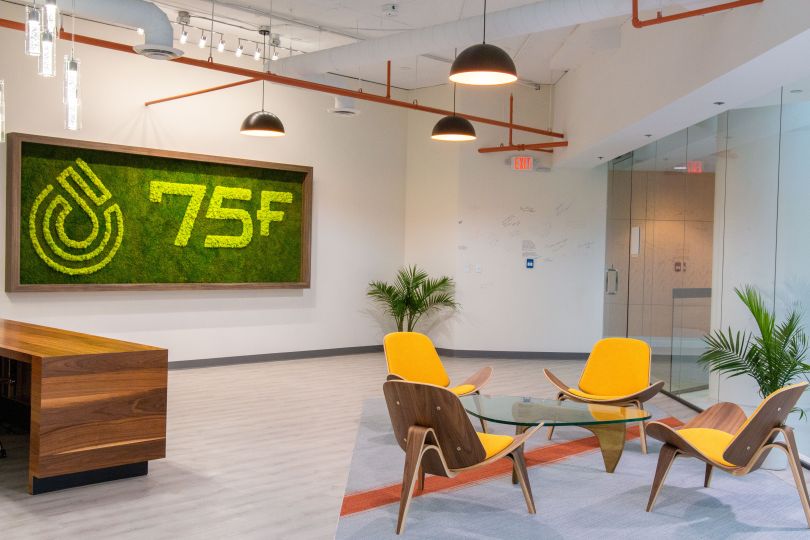Deepinder Singh saw a startup venture in his daughter’s middle-of-the-night shivers.
When the engineer realized his daughter’s bedroom became 10 degrees colder than the rest of his family’s home every evening, he was determined to find a solution. Believing he was onto something bigger, he quit his job and used his personal funds to begin building smart sensors and software that create a consistent, comfortable temperature in indoor spaces; a venture that proved to be effective, energy-efficient and eco-friendly.
Although Singh’s small, India-based team was initially focused on building technology for the residential sector, these efforts were stalled when the team realized the financial implications of navigating the B2C market. They began concentrating their efforts on the commercial space and, in 2012, 75F was born.
When the company was founded, the IoT sector was still in its infancy, and the team lacked a template to work with. In Singh’s mind, it was like starting with a blank sheet of paper.

Roughly 10 years later, the sheet of paper has taken the form of an intelligent building management system that creates workplaces that are pleasant temperature-wise, less costly and more sustainable. The system is also easy to set up — grade-school students managed to install it in a test run — and can be simply managed through a smartphone.
Since its inception, 75F has made it possible for businesses of various sizes to help mitigate climate change, reduce energy costs and offer more comfortable workspaces for their employees. In the wake of ample progress, the team continues to pursue its mission: to make buildings smarter.
Here’s what Singh had to say about the company’s culture, impact and vision.
On the culture that motivates team members:
“We went through a very interesting exercise, during which we asked ourselves, ‘If we were going to break away and create a brand new company that would kick 75F’s ass, which of our current employees would we want to bring along with us? What belief systems or values did they exhibit that made us want to carry them along to the new company?’
“If we were going to create a new company to kick 75F’s ass, which employees would we bring? What belief systems or values did they exhibit?”
“We came across these consistent behaviors, which became the core values that people should have to be successful at 75F. As we go through this experience as a startup, we believe all of these values are going to be necessary to help us achieve our goal.”
75F'S CORE VALUES
- Extreme Ownership
- Innovation
- Teamwork
- Tenacity

On how 75F empowers its customers:
“A lot of control operators are trying to truly control the building, so they’re going to be the single point of contact for making changes. We’re trying to make sure that our solution is such that we enable people to go and make these changes themselves. You shouldn’t have to call someone for help if one tenant is feeling uncomfortable. We’re giving the tools to these people so they can whip out their phone and make these adjustments. In my mind, that’s a paradigm that people are going to demand in the future.”
20%, 27 MILLION, 90
According to Singh, 20 percent of the electricity used in buildings worldwide is for heating and cooling. If 75F deployed nationwide, it would be the same as taking 27 million cars off the road, saving enough greenhouse gases to shut down 90 coal-fired power plants.

On his vision for the future:
“We are not interested in building smart sensors and controls for the few, but to create a platform that can make every building more comfortable and more efficient than it is today.”
“This begins with data that is open and interoperable, in a framework that can be leveraged for years to come. Applied to machine learning algorithms, that data is unlocking secrets as to how our buildings perform and where the greatest gains can be achieved. From persistent technological innovation to continuous transformation, we are working to meet our customers’ current and future needs by enabling them to stay a step ahead.”





